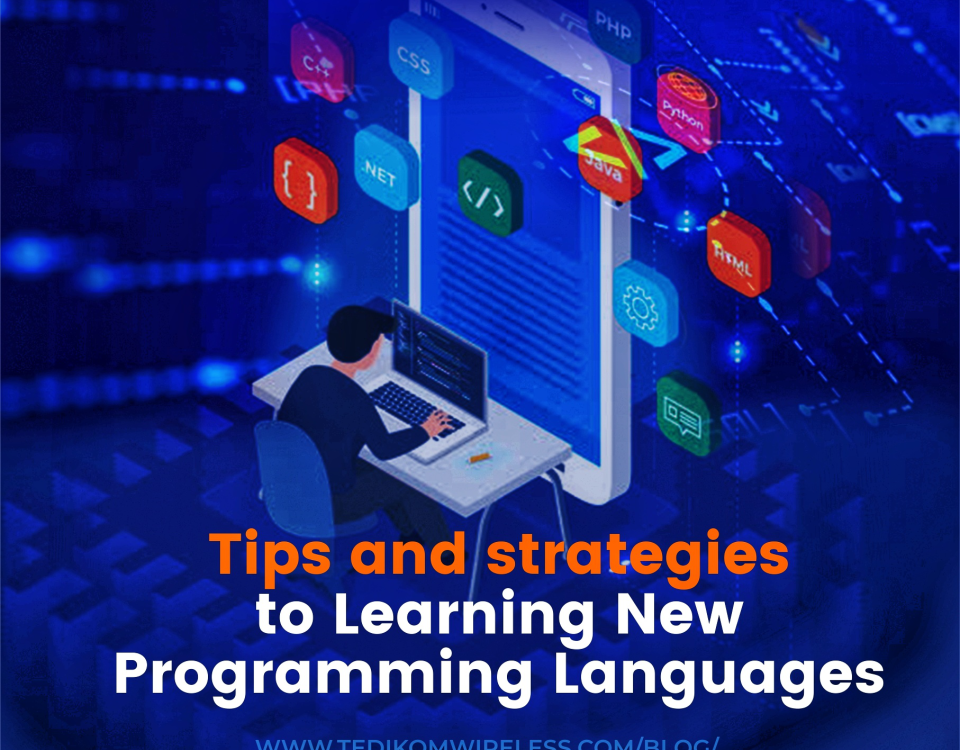Tips and Strategies to Learning New Programming Languages
Learning a new programming language can feel like an overwhelming task, especially if you’re just starting out. But with the right approach and mindset, it can be an enjoyable and rewarding experience. Here’s a simple guide to help you get started:
- Start with the Basics
Every programming language has its own syntax (the set of rules that define how to write it). Begin by familiarizing yourself with the basics, such as variables, loops, and functions. These are the building blocks of any program. Don’t rush—take your time to understand these fundamental concepts.
Tip: Use online tutorials, coding apps, or beginner-friendly books. Platforms like Codecademy, freeCodeCamp, or Khan Academy offer interactive lessons that are great for beginners.
- Practice by Building Small Projects
The best way to learn is by doing. Start with small projects that you can build on your own. This could be something simple like a calculator, a to-do list, or a basic website. These projects will help you apply what you’ve learned and solidify your understanding.
Tip: Don’t worry if your projects are basic at first. As you progress, you’ll be able to tackle more complex challenges.
- Learn by Debugging
Errors, or bugs, are a normal part of programming. When your code doesn’t work as expected, don’t get discouraged. Instead, see it as a learning opportunity. Debugging (finding and fixing errors) helps you understand how the language works and where you might be going wrong.
Tip: Use the error messages provided by your code editor—they often give clues on what’s wrong and how to fix it.
- Join Coding Communities
Learning doesn’t have to be a solo journey. Join online forums, social media groups, or local meetups where you can connect with other learners and experienced programmers. Communities like Stack Overflow, Reddit, and GitHub are great places to ask questions, share your work, and get feedback.
Tip: Don’t be afraid to ask questions, no matter how simple they seem. Everyone was a beginner once.
- Consistent Practice is Key
Programming is like learning a new language—you have to practice consistently to become fluent. Dedicate a little time each day to coding. Even 20-30 minutes of daily practice can make a big difference over time.
Tip: Try to solve coding challenges on platforms like LeetCode, HackerRank, or Codewars. These platforms offer problems of varying difficulty to keep you challenged.
- Understand the ‘Why’ Behind the Code
It’s important to understand not just how to write code, but why you’re writing it a certain way. This deeper understanding helps you adapt to new programming languages more easily in the future.
Tip: After you write a piece of code, take a moment to explain to yourself (or someone else) what it does and why you chose that approach.
- Don’t Fear Making Mistakes
Mistakes are a natural part of learning. Don’t be afraid to experiment, break things, and make errors. Each mistake is a stepping stone towards mastering the language.
Tip: Keep a coding journal where you document your mistakes and what you learned from them. This can be a valuable resource as you continue to learn.
- Explore the Documentation
Every programming language has its own official documentation, which is a detailed guide on how the language works. While it might seem intimidating at first, learning to navigate the documentation will help you find answers and understand advanced concepts.
Tip: Bookmark the documentation for your language of choice and refer to it whenever you get stuck or need more information.
- Set Clear Goals
Before diving into learning a new language, set clear goals. Do you want to build a specific app? Or perhaps you’re interested in data analysis? Knowing your end goal will help you focus on the most relevant parts of the language.
Tip: Break down your goal into smaller milestones. Celebrate each one as you achieve it to keep yourself motivated.
- Keep an Open Mind
Programming is constantly evolving, and new languages and tools are always emerging. Stay curious and be open to learning new things. The more languages and technologies you explore, the more versatile and valuable you’ll become as a programmer.
Tip: Once you’ve learned one language, challenge yourself by picking up another one. Each new language will be easier to learn as you become more experienced.
Learning a new programming language is a journey that requires patience, practice, and persistence. Start small, stay consistent, and don’t hesitate to seek help from the community. Remember, every expert was once a beginner, and with the right strategies, you’ll be coding confidently in no time.









